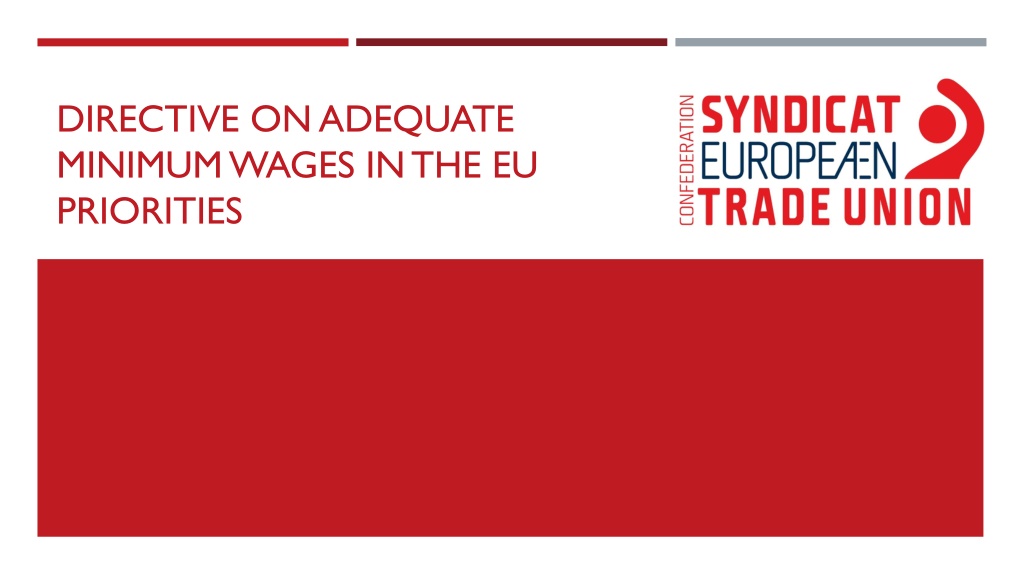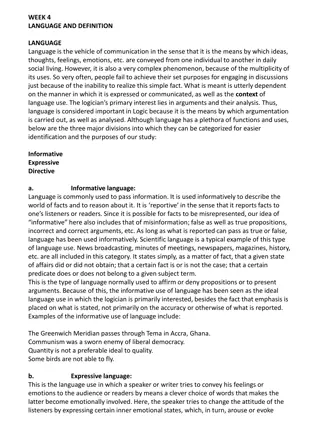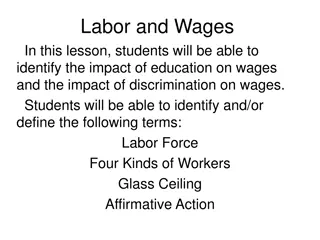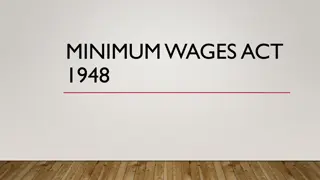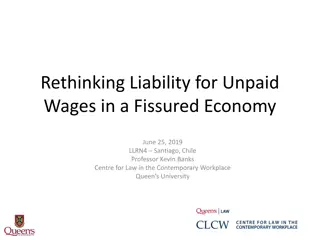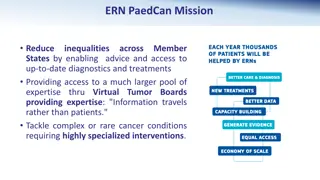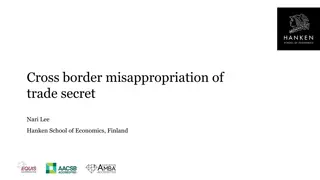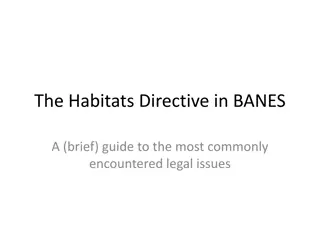Directive on Adequate Minimum Wages in the EU Priorities
Priority 1 emphasizes protecting against unintended consequences and detrimental impact by amending definitions of collective bargaining, monitoring mechanisms, and promoting real improvements in national action plans. Priority 2 focuses on ensuring the Directive lives up to its aims by introducing double decency thresholds for statutory minimum wages, addressing subminimum rates and deductions, including the right to collective bargaining in public procurement, and strengthening enforcement through enhanced field inspections and resources allocation.
Download Presentation

Please find below an Image/Link to download the presentation.
The content on the website is provided AS IS for your information and personal use only. It may not be sold, licensed, or shared on other websites without obtaining consent from the author. Download presentation by click this link. If you encounter any issues during the download, it is possible that the publisher has removed the file from their server.
E N D
Presentation Transcript
DIRECTIVE ON ADEQUATE MINIMUM WAGES IN THE EU PRIORITIES
PRIORITY 1: PROTECTING AGAINST UNINTENDED CONSEQUENCES AND DETRIMENTAL IMPACT Amend the definition of collectivebargaining Replace workersorganisations with tradeunions in the definition of collective bargaining. It is unacceptable if Member States replace trade unions with works councils. Amend the monitoring mechanism Ensure that there is no obligation for all Member States to record / require the publication of collective agreements which are not universally applicable. Ensure that the monitoring mechanism foresees the participation of social partners. Ensure that the monitoring mechanism aims at ensuring the respect of the objectives of the Directive, i.e. at guaranteeing that statutory minimum wages are adequate and that collective bargaining coverage increases and the right to collective bargaining is respected (i.e. the monitoring mechanism cannot be used to push wages down or to undermine collective bargaining).
PRIORITY 1: PROTECTING AGAINST UNINTENDED CONSEQUENCES AND DETRIMENTAL IMPACT Amend Article 4 on the promotion of collective bargaining Guarantee that the objectives of Par 1 and 2 are to increase collective bargaining coverage and to ensure the respect of the right to collective bargaining. Ensure that the framework of enabling conditions is such that the national action plans can have real improvements (really contribute to increase collective bargaining coverage). Include provisions against union busting. Amend the criteria in Article 5 Delete productivity from the criteria. Amend Article 1 to ensure the respect the different wage setting systems Ensure that the Directive respects the different wage setting systems, for Member States where both statutory minimum wages and collective bargaining systems operate and for Member States where wages are defined only through collective bargaining. At the same time, ensure that the provision which clarifies that no Member States are obliged to introduce a statutory minimum wage is maintained.
PRIORITY 2: ENSURING THE DIRECTIVE LIVES UP TO ITS STATED AIMS Statutory minimum wages Introduce the double threshold of decency (Member States shall ensure that statutory minimum wages must not be set below a threshold of 60% of the national median gross wage and 50% of the national average gross wage). Ensure that statutory minimum wages must be at least adequate . Amend Article 6 on subminimum rates and deductions Ensure that the Directive prevent exclusions, subminimum rates and deductions. Public procurement Ensure that the Article on public procurement also includes the respect of the right to collective bargaining as a condition for companies to access public procurement contracts. Enforcement Strengthen the controls and intensity of field inspections and guarantee that inspectorates and other bodies responsible for the enforcement of statutory minimum wages have the necessary human and financial resources.
